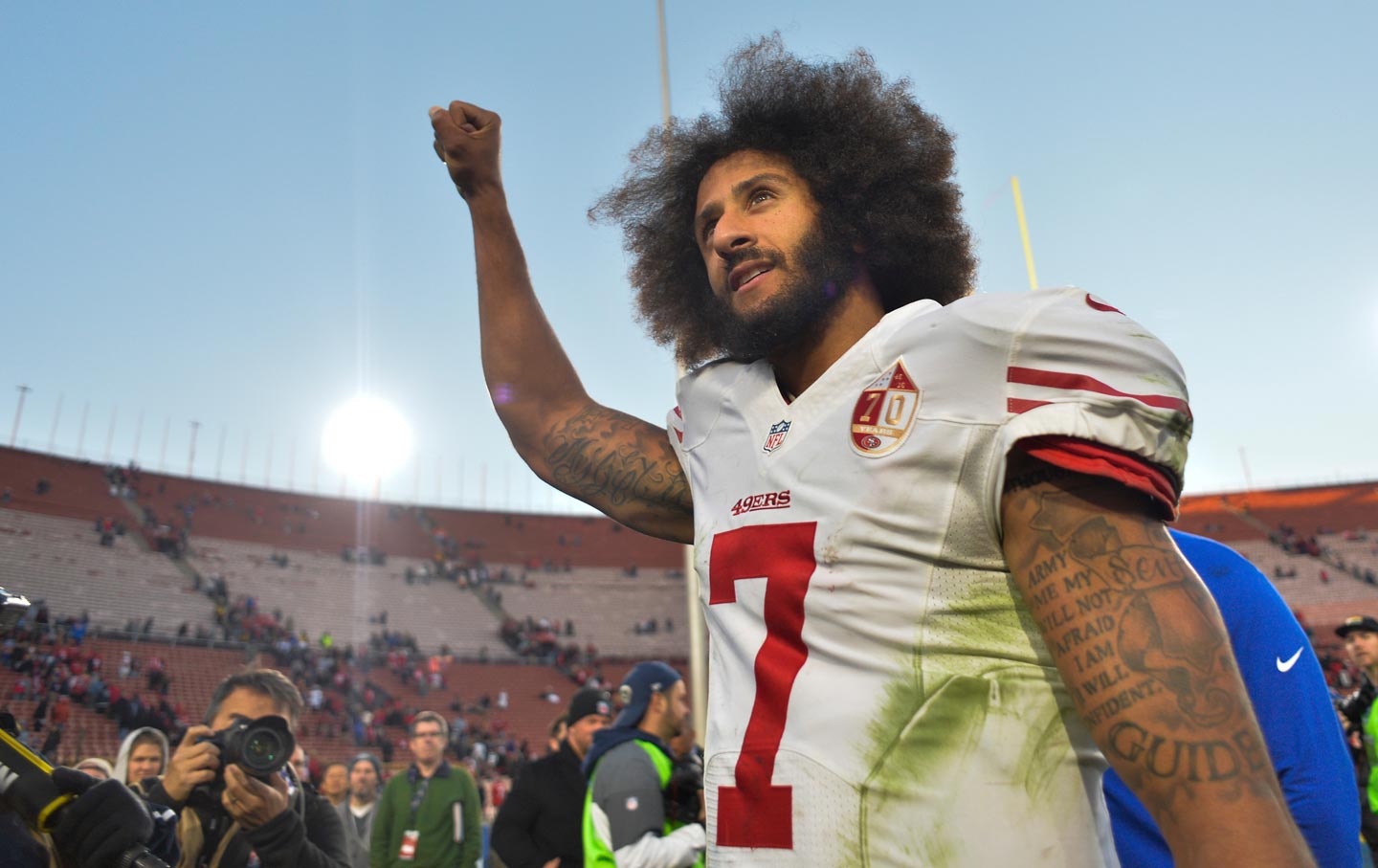The Awakening of Colin KaepernickPosted in Articles, Biography, Media Archive, Social Justice, United States on 2017-09-08 13:53Z by Steven |
The Awakening of Colin Kaepernick
The New York Times
2017-09-07
 Colin Kaepernick may forever be known as the quarterback who knelt for the national anthem before N.F.L. games in 2016 as a protest against social injustice. Credit Ezra Shaw/Getty Images |
The standout college quarterback went to the meeting alone that winter night, looking to join. The fraternity brothers at Kappa Alpha Psi, a predominantly black fraternity with a small chapter at the University of Nevada, knew who he was. He was a tall, lean, biracial junior, less than a year from graduating with a business degree.
“When he came and said he had interest in joining the fraternity, I kind of looked at him like, ‘Yeah, O.K.,’” said Olumide Ogundimu, one of the members. “I didn’t take it seriously. I thought: ‘You’re the star quarterback. What are you still missing that you’re looking for membership into our fraternity?’”
His name was Colin Kaepernick, and what he was looking for, Ogundimu and others discovered, was a deeper connection to his own roots and a broader understanding of the lives of others.
Seven years later, now 29, Kaepernick is the most polarizing figure in American sports. Outside of politics, there may be nobody in popular culture at this complex moment so divisive and so galvanizing, so scorned and so appreciated…
…‘How Dare You Ask Me Something Like That?’
Turlock is a pleasant and unremarkable place in California’s flat, interior heartland. It is stifling hot in the summer and can be cool and rainy in the winter. Like many sprawling cities of central California, it features suburban-style neighborhoods and strip malls slowly eating the huge expanses of agriculture that surround it. And, like neighboring cities, the population of about 73,000 is overwhelmingly white and increasingly Latino. In Turlock, fewer than 2 percent of residents identify as African-American, according to the census.
Kaepernick moved there when he was 4. He was born in Milwaukee to a single white mother and a black father and quickly placed for adoption. He was soon adopted by Rick and Teresa Kaepernick of Fond du Lac, Wis., who were raising two biological children, Kyle and Devon. They had also lost two infant sons to congenital heart defects.
The family moved to California because Rick Kaepernick took a job as operations manager at the Hilmar Cheese Company, where he later became a vice president.
The boy became used to strangers assuming he was not with the other Kaepernicks. When anyone asked if he was adopted, he would scrunch up his face in mock sadness. “How dare you ask me something like that?” he would reply, and then laugh…
Read the entire article here.



